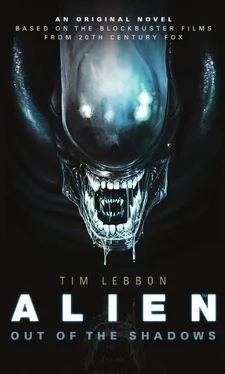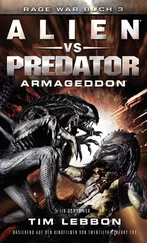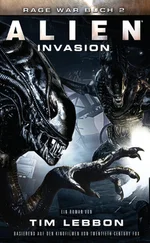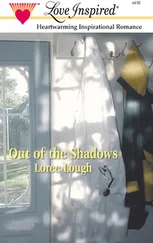It’s well-paid, had been his response. One more long job, then we’ll be able to buy our own business back on Earth, be self-sufficient.
And so it had spiraled, until eventually he had retreated to the one thing he knew was utterly indifferent, not caring how and what he was.
Space.
I ran away. The thought dogged him constantly, and it was the last thing the woman he loved had said. You’re running away.
Ripley’s presence made him feel more guilty than before, because in his case it had been a willing decision. She should only have been away for eighteen months.
* * *
He and Ripley spent some more time in the Narcissus , talking about the journey they would undertake together, being positive, discussing how nine people could live in a shuttle designed for three or four, at most. For years. Perhaps many years.
All the time there was a quiet hysteria lurking behind everything they said, a shared understanding that this was a crazy, unworkable idea. But it was their only idea. Sometimes it felt cramped with just the two of them in the shuttle, although Hoop wondered whether that was just him.
They also discussed their families. Hesitatingly at first, but then with an increasing openness. They talked of guilt, and how incredible distances did nothing to dull the sense of loss. He didn’t pity her, and he thought she was thankful for that. She gave him understanding, and he was grateful. They were both cursed by distance and time, and the staggering loneliness that both could instill in a person. They were getting to know each other. And while it was a good feeling, there was also something delicate about every connection made.
They were both tentative, guarded. Their situation meant that they could be ripped apart at any moment.
They also talked about Ash. Hoop was quite the computer expert, and he didn’t mind saying it. But though he was relatively confident about being able to purge Ash’s AI from the shuttle’s computer—or at very least, compartmentalize it so that it could no longer exert any control—he and Ripley decided that he should wait until they were away from the Marion and headed home. They would need the computer untouched and undamaged in order to program their route, and it was possible—albeit remotely—that his efforts to remove Ash might corrupt a wider swathe of the systems.
Besides, the disembodied Ash could do them no harm.
Those three days passed quickly, and there were tensions in the group. There always had been, and those that were familiar Hoop cast to one side. The relationship between the doc and Garcia was weird—he thought they were probably lovers, as well as colleagues—but they were always efficient, and professional when it was needed. Powell complained. Sneddon was quiet and steadfast, a gentle bravery shining through. She would be a rock for them all.
The others bickered, though no more than usual. But it was Ripley’s presence that caused the greatest waves.
* * *
“But I can’t help being fascinated by them,” Sneddon said. She was scrolling through stills from inside the Samson again, the tablet propped against her coffee mug. It had been almost three weeks since they’d last seen inside the dropship. None of them knew what to expect when they opened it up.
“They’re monsters,” Ripley said. She was leaning against a work counter. The science lab was small and compact, and with the three of them in there it was already growing warm. Hoop had suggested that they conserve power and turn off any unnecessary environmental systems.
“We’re not catching them, Sneddon,” Hoop said. “That door opens and we kill them.”
“Oh, yeah, sure,” Sneddon replied without looking up. “But have you considered just how?”
“Of course. The plasma torches, sand picks, and charge thumpers.”
“Right,” Sneddon said. “So torch them with plasma and their skin, or whatever they have, bursts open. Acid spills. Sand picks hack at them… open them up. Fire projectiles with the charge thumpers… more acid.”
“What else do you suggest?” Ripley asked, an edge to her voice.
“I suggest that we come up with something else,” Sneddon said. “Trap them somehow. Hold them until we can—”
“We need to kill them, or they’ll kill us ,” Ripley said. “If they’re anything like the one we had on Nostromo they’ll be eight, nine feet tall, incredibly fast and strong, and utterly vicious. And you want to trap them? How? You got a box we can bait with some cheese?”
Sneddon sat back, looking calm and composed. She glanced at Ripley, then looked squarely at Hoop.
“Is she safe?” she asked.
“Safe as any of us are right now,” Hoop said. He looked at Ripley, frowned, tried to warn her off. But he could see that her outburst was driven by fear, not anger. For a moment it seemed as if she was seeing something very far away, and he wondered yet again at the nightmares she must still suffer. She’d told him about each of her dead crewmates—some of them her friends, the captain her occasional lover.
“Cargo netting,” Sneddon said.
Ripley coughed something between a laugh and a gasp.
“It’s strong enough to pack tons of equipment in the holds,” Sneddon went on. “Twisted steel core. It’ll hold them long enough for us to decide what to do with them.”
“How do you know it will work?” Ripley asked.
“How do you know it won’t?” Sneddon countered. “At least this way we don’t risk burning a hole right through the hull. If what you say about acid is true…”
“It’s true,” Ripley said. “What, you don’t believe me now?”
Sneddon sighed, swinging back in her chair. “I think we just need to be—”
“Who appointed you science officer?” Ripley asked.
“The company. Kelland.”
“Which is owned by Weyland-Yutani.”
“Very distantly, yes,” Sneddon replied. “So?”
“And you worked for Weyland-Yutani before that?”
“I served my apprenticeship with them, on Mars, yes.”
“Ripley?” Hoop asked. She seemed to be losing control, panicking. He didn’t like that. More than anything, it made his own subsumed panic start to simmer again. Without even realizing it, he thought perhaps he’d taken Ripley’s strength to feed his own.
“Don’t wrap me in your conspiracies,” Sneddon said quietly.
“This isn’t about gathering specimens,” Ripley said. “It’s about surviving!”
“I didn’t say I wanted to gather anything.”
“But you find them fascinating—you said so yourself.”
“And you don’t?” Sneddon asked. She slid the tablet across the bench, but Ripley looked away.
“No,” she said. “Horrifying. Repulsive. But not fascinating.”
Knowing what Ripley had told him about Ash, Hoop supposed he should have seen this coming. He wanted to defuse the situation, bring it back onto a calm footing. It had started as a friendly discussion about how the creatures could be tackled, but had descended into a standoff. He took a breath, ready to speak.
But Sneddon’s actions spoke for him.
She slid open an equipment drawer, plucked out a scalpel and nicked the top of her thumb. She squeezed the digit and smeared a droplet of blood across the white bench surface. Then she looked at Ripley.
Ripley sighed. “Sorry,” she said. “Really.”
Sneddon smiled. “Hey, I can’t blame you. Truth is, I’ve never liked androids myself.”
“Really?” Ripley said.
“I’m a science officer, but my basis is in biology.” She picked up a piece of gauze, and held it firmly over the cut. “I find them unnatural.”
Читать дальше












